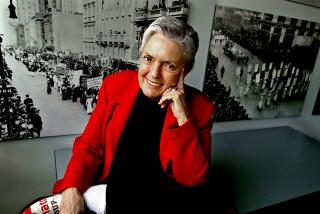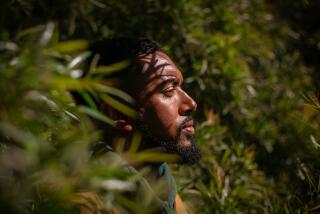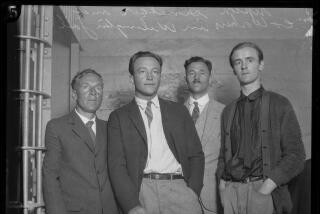Vivian Monroe dies at 85; shaped the Constitutional Rights Foundation
- Share via
Frustrated by America’s collective ignorance of the Bill of Rights, a group of lawyers founded the Constitutional Rights Foundation in Los Angeles to try to do something about it.
They made an early move they quickly considered brilliant: hiring Vivian Monroe as the group’s founding director in 1962.
Invariably described as persistent and tenacious, she transformed the foundation into a well-funded enterprise. It soon expanded beyond its initial mission of improving young people’s understanding of the Constitution to staging law-related programs such as Mock Trial.
Monroe died March 5 at her home in Los Angeles after many years of declining health, said her daughter Jaymie Monroe. She was 85.
“Vivian made the most committed and energetic among us look weak in comparison,” Richard Kolodny, a longtime board member of the foundation, said in an e-mail. “Her powerful sense of the good that she was doing . . . imbued everything that she did with a visible glow.”
Calling Vivian Monroe “inspirational,” Marshall Croddy, the group’s vice president, said her vision made the foundation what it is today.
From one employee -- Monroe -- the foundation has grown into a $3-million operation with 20 paid workers and a national scope and outreach, Croddy said.
The foundation was one of the country’s first community-sponsored groups concerned with developing improved school programs on law, the Constitution and the Bill of Rights.
It was soon obvious to Monroe that the organization’s strategy of teacher training was not enough.
The group came to feel “that young people have to be directly involved in citizenship kinds of activities that will give them access to the community,” she told The Times in 1982. “We’ve broadened out to almost every issue that deals with law.”
Programs included Mock Trial, a student competition begun in Los Angeles in the late 1970s that expanded to the state; a Law Day conference that taught about consumerism and other law-related topics; and the Lawyers in the Classroom initiative, which lived up to its name and supplied Mock Trial coaches.
Monroe was careful to point out that the foundation offered no particular interpretation of the Constitution but rather sought “a dialogue,” she told The Times in 1967.
“The ultimate goal,” she later said, is for young participants to become leaders who would go on to vote and “see that they have a stake” in being good citizens.
In 1991, Monroe was chief organizer of the foundation’s citywide celebration of the bicentennial of the ratification of the Bill of Rights.
Raymond C. Fisher, a judge on the U.S. 9th Circuit Court of Appeals who worked with Monroe on the bicentennial, laughed as he called her “a terrific noodge” and said: “Vivian has left behind an amazing and constructive legacy, particularly for young people in Los Angeles and nationwide.”
Born July 19, 1924, in Chicago, she was the only child of Noah and Bertha Angle. Her father ran a newsstand and her mother made neckties in the garment district.
Raised to be politically active, she worked on political campaigns after moving to Los Angeles in the 1940s.
After a first marriage ended, she married Eason Monroe, executive director of the American Civil Liberties Union, in 1959.
They divorced after a decade, but through Eason she had connected with the foundation, which she retired from in 1992.
“The foundation was her sixth child,” said her daughter Jaymie, one of five children. “It was everything to her.”
Monroe was also particularly proud of another accomplishment: buying a house in Pacific Palisades as a single mother in 1976.
In addition to her daughter Jaymie, Monroe is survived by her husband, Victor Kaplan, whom she married in 2002; four other children, Marilyn Wallace, Michael Monroe, Eric Mandel and Jonathan Mandel; 11 grandchildren; and two great-grandchildren.
Services will be held at 1:30 p.m. April 25 at Temple Beth Hillel, 12326 Riverside Drive, Valley Village.
More to Read
Start your day right
Sign up for Essential California for the L.A. Times biggest news, features and recommendations in your inbox six days a week.
You may occasionally receive promotional content from the Los Angeles Times.







